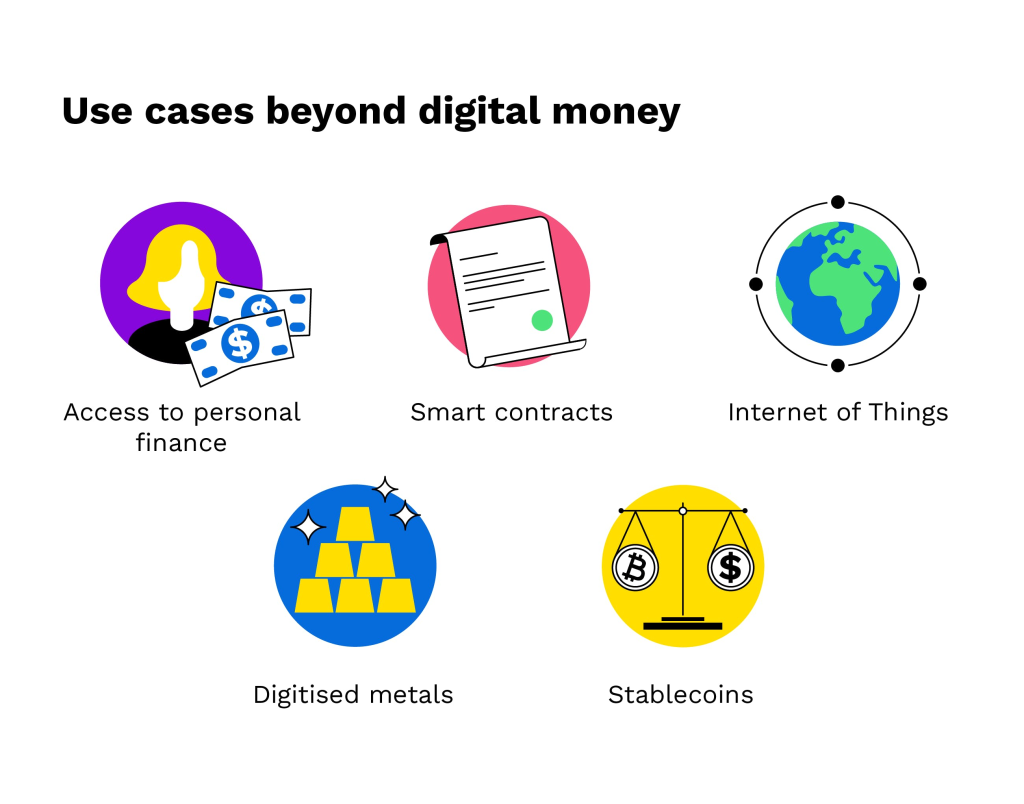Unlocking The Potential: Exploring Cryptocurrency Use Cases For Maximum Impact
Cryptocurrency Use Cases: Unlocking the Potential of Digital Assets
Introduction
Hello, Readers! Welcome to this informative article on cryptocurrency use cases. In this digital age, cryptocurrencies have emerged as a groundbreaking technology that has revolutionized various industries. From finance to healthcare, cryptocurrencies have found diverse applications, offering innovative solutions to long-standing challenges. In this article, we will explore the wide range of use cases for cryptocurrencies and how they are reshaping the future of transactions and decentralized systems.
1 Picture Gallery: Unlocking The Potential: Exploring Cryptocurrency Use Cases For Maximum Impact

Table: Cryptocurrency Use Cases
Use Case
Description
Online Payments
Enables efficient and secure transactions across borders.
Remittances
Facilitates fast and low-cost cross-border money transfers.

Image Source: imgix.net
Smart Contracts
Automates and secures contract execution without intermediaries.
Supply Chain Management
Enhances transparency and traceability in the global supply chain.
Identity Verification
Provides a decentralized and secure platform for identity verification.
Voting Systems
Ensures transparent and tamper-proof voting processes.
Cryptocurrency Use Cases: Explained
What are Cryptocurrency Use Cases? 📂
Cryptocurrency use cases refer to the practical applications of digital currencies in various sectors. These use cases leverage the unique features of cryptocurrencies, such as decentralization, security, and immutability, to provide innovative solutions to real-world problems. Let’s explore some of the most prominent use cases in detail.
Who Benefits from Cryptocurrency Use Cases? 💸
The benefits of cryptocurrency use cases extend to individuals, businesses, and even governments. Cryptocurrencies empower individuals by giving them direct control over their finances and enabling access to financial services for the unbanked. Businesses can benefit from reduced costs, increased efficiency, and improved security offered by cryptocurrency transactions. Governments can leverage cryptocurrencies for transparent and efficient public services, such as welfare distribution and voting systems.
When to Use Cryptocurrency? 🕐
Cryptocurrency is best suited for situations that require secure, fast, and cost-effective transactions. It is particularly useful for cross-border payments, remittances, and micropayments. Additionally, industries that rely on trust and transparency, such as supply chain management and identity verification, can greatly benefit from cryptocurrency solutions.
Where are Cryptocurrencies Being Used? 🌎
Cryptocurrencies are being adopted globally, with various countries and industries recognizing their potential. Major financial institutions are incorporating cryptocurrencies into their operations, while some countries have legalized cryptocurrency usage and even developed their own national digital currencies. Furthermore, startups and tech companies are actively exploring new use cases and integrating cryptocurrencies into their platforms.
Why Choose Cryptocurrency? 💡
Cryptocurrencies offer several advantages over traditional financial systems. They provide increased security through cryptography, reducing the risk of fraud and identity theft. Additionally, cryptocurrencies enable faster and cheaper transactions, especially for cross-border transfers. They also promote financial inclusion by giving access to financial services to the unbanked population. Furthermore, cryptocurrencies eliminate the need for intermediaries, reducing transaction costs and enhancing efficiency.
How are Cryptocurrencies Used in Practice? 💻
Cryptocurrencies are used through digital wallets and blockchain-based platforms. Individuals and businesses can store, send, and receive cryptocurrencies using wallet applications on their smartphones or computers. Blockchain platforms enable the execution of smart contracts, which automate the enforcement and fulfillment of agreements without the need for intermediaries. These platforms provide a transparent and secure environment for various applications, such as supply chain management and voting systems.
Advantages and Disadvantages of Cryptocurrency Use Cases
Advantages of Cryptocurrency Use Cases
1. Enhanced Security: Cryptocurrencies utilize advanced cryptographic techniques, making transactions more secure and reducing the risk of fraud.
2. Cost Efficiency: Cryptocurrency transactions eliminate intermediaries, reducing transaction costs and enabling faster transfers, especially for cross-border payments.
3. Financial Inclusion: Cryptocurrencies provide access to financial services for the unbanked population, empowering individuals in underserved areas.
4. Transparency and Traceability: Blockchain-based cryptocurrencies enable transparent and traceable transactions, promoting trust and accountability in industries like supply chain management.
5. Decentralization: Cryptocurrencies operate on decentralized networks, removing the need for central authorities and reducing the risk of censorship and manipulation.
Disadvantages of Cryptocurrency Use Cases
1. Volatility: Cryptocurrencies are known for their price volatility, which can pose risks for investors and businesses.
2. Regulatory Challenges: The regulatory landscape for cryptocurrencies is still evolving, leading to uncertainty and potential legal hurdles.
3. Scalability Issues: Some cryptocurrencies face scalability challenges, limiting their ability to handle a large volume of transactions.
4. Energy Consumption: The mining process of certain cryptocurrencies consumes significant amounts of energy, raising concerns about environmental impact.
5. Lack of Adoption: Despite growing acceptance, cryptocurrencies still face challenges in terms of widespread adoption and acceptance by the general public.
Frequently Asked Questions (FAQ) About Cryptocurrency Use Cases
1. Can I use cryptocurrencies for everyday purchases?
Yes, cryptocurrencies can be used for everyday purchases through merchant services and payment gateways that accept digital currencies.
2. Are cryptocurrencies legal?
The legality of cryptocurrencies varies by country. While some countries have embraced cryptocurrencies, others have imposed restrictions or banned their usage.
3. How can cryptocurrencies improve supply chain management?
Cryptocurrencies enable transparent and traceable transactions on the blockchain, ensuring the authenticity and provenance of products throughout the supply chain.
4. Can cryptocurrencies replace traditional fiat currencies?
While cryptocurrencies have the potential to disrupt traditional financial systems, it is unlikely that they will entirely replace fiat currencies in the near future.
5. How can I secure my cryptocurrency investments?
To secure your cryptocurrency investments, it is important to use reputable wallets, enable two-factor authentication, and stay updated on the latest security practices in the crypto industry.
Conclusion
In conclusion, cryptocurrency use cases are rapidly expanding, offering innovative solutions across industries. From online payments and remittances to smart contracts and supply chain management, cryptocurrencies are reshaping the way we transact and interact with digital assets. While there are advantages and disadvantages to consider, the potential of cryptocurrencies to enhance security, efficiency, and financial inclusion cannot be ignored. It is crucial for individuals, businesses, and governments to embrace and adapt to the evolving landscape of cryptocurrencies to unlock their full potential.
Final Remarks
Friends, as you delve into the world of cryptocurrency use cases, it is important to stay informed and exercise caution. While cryptocurrencies offer exciting opportunities, they also carry risks. Always do thorough research, consult experts, and make informed decisions when engaging with cryptocurrencies. The future of finance and decentralized systems holds immense potential, and by understanding and embracing cryptocurrency use cases, we can shape a more inclusive and secure digital economy for all.
This post topic: Blockchain Insights


